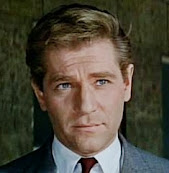
It’s not often that a jaunty military tune is whistled loudly by British prisoners of war on their way to their new camp in the jungles, which were the killing fields of the war in the Pacific. The Bridge on the River Kwai, however, essentially launched a military barroom ditty to new heights of popularity, whistled and hummed by children and adults around the world: Colonel Bogie’s March. The unlikely entrance of these potential Japanese slave laborers is an amazing introduction to a film that’s not really about bridge building. Oh yes, the bridge gets built and destroyed, but the clash of wills between different ideologies and the very complex nature of the characters themselves is at the core of this stunning Academy award-winning film.
The legendary producer Sam Spiegel was determined to film this story since he first read about it in a French newspaper review of the novel by Pierre Boulle. He read it like an Evelyn Wood graduate and immediately bought the rights to the film from the author and the publisher. Over the next three years, in order to achieve perfection of detail and authenticity of locale and events, Spiegel traveled the world looking for locations, finding the right actors, writers, director, cinematographer and the vast company of craftsmen who were essential to the look and feel of the film.

By 1956, director David Lean had helmed several of the better British movies of the late 1940s, including Brief Encounter, Oliver Twist, and Great Expectations. He had guided Katharine Hepburn, for her role in Summertime, filmed on location in Venice, in 1955. Sam Spiegel was about to give him the job that would make him a world-famous and even more respected filmmaker.
To adapt Boulle’s book, Spiegel chose Michael Wilson and Carl Foreman; unfortunately, both had been hounded by the House Un-American Activities Committee in its witch hunt for Communists in Hollywood. At its initial release, the writing credits were attributed to Pierre Boulle. Eventually, Wilson and Foreman were reinstated in the opening credits as the actual writers.
The lead roles in the film were a British Colonel, a British commando, and an American who had escaped from the prisoner of war camp. Spiegel had no problems signing on Jack Hawkins and William Holden, but Alec Guinness was adamant about not wishing to appear in the film. Spiegel made one last attempt to convince Guinness and invited him out to dinner, and by dessert Guinness was on board. To round out the major casting, he chose Japanese silent film star Sessue Hayakawa for the pivotal role of the camp commandant given the task of getting the bridge completed.
Hating the British, Hayakawa's Colonel Saito relishes the idea of breaking their spirit and humiliating their officers by requiring them to construct the bridge. Initially, Guinness's Colonel Nicholson refuses to cooperate and is punished severely. He changes course, though, with the horrible irony of the story being that he finds salvation for his troop’s morale by building a bridge that will last "600 years." Nicholson doesn’t know that a group of commandos is on their way to destroy the bridge to cripple the Japanese supply line from Singapore to India. A war film by genre, The Bridge on the River Kwai offers the audience more than it expects, a thought-provoking examination of bravery and heroism and the lessons to be learned.

Columbia pictures is to be congratulated for putting this film in the collector’s edition which includes the original DVD and an new amazing Blu-ray disc. The DVD set is in the shape of a book, which contains the old DVD at the beginning and the Blu-ray at the end. In between, there are photographs of posters, reproduced actual lobby cards, an excerpt from the original so
uvenir book in 1957, candid and publicity photographs from the set and very brief mini-profiles of the actors and director. The older disc has interesting extras, including a short film on the making of the movie with comments from some of the associates who worked with David Lean. There is also a chronological depiction of the actual building of the bridge; a student film about the real bridge narrated by William Holden, and comments by filmmaker John Milius.
This review was written by Cafe film critic Sazball.
Columbia Classics provided a review copy of this DVD to the Classic Film & TV Cafe.













